Bladesong Read online
Page 10
Even whiter and quieter, Estela responded. ‘Johans de Villeneuve lives simply, has other children, has a noble estate, but not enough to attract attention, has the favour of the Viscomtesse of Narbonne, is a kind man who will offer Musca what I cannot. No-one will ever think to look there for the baby and Johans has no place in public life, creates no ripples.
But you are right. My Lord Dragonetz would indeed want you to protect Musca, and so do I. You and Gilles and Prima are to go with Musca. This is what I want. These are my orders.’
This time Gilles was equally forthright as the two men slammed their fists on the table. ‘By the rood, I will not!’ ‘Nor I!’ Only Prima said nothing, listening, wide-eyed as her fate was discussed.
Stony-faced, Estela said, ‘And Nici too. He is a good guard dog and I want Musca to be safe. Even Nici isn’t safe here now.’
‘And you?’ Gilles demanded.
‘I must stay here,’ she said. ‘Don’t you see? Miquel will think that the baby is where I am. If he sees me here, he’ll stay, looking, convinced Musca is somewhere around. He hasn’t even looked at Musca so if he remembers anything about what the baby’s face, he’ll be seeking Simo, and Prima, which is why you must all go.’
‘He wants to kill you.’
It was the simple truth. ‘Yes. But he wants to kill the baby too. He needs to kill the baby. Musca is a threat to his very inheritance. This goes beyond personal, for him and for Costansa. They won’t kill me while they think I can lead them to the baby.’
The silence deepened, full of the tiny noises made by sleeping babies, and the larger sighs of a contented dog.
‘I know,’ said Estela. ‘But there isn’t any other way. Don’t you think I’ve tried to find one! It’s not forever. Just for ... a while. Until things change. Until I can think of something.’ Until Dragonetz comes back to me, her heart said but she felt the words heavy, a lump of false gold, not true coin.
Raoulf weighed his words, speaking with difficulty. ‘I know what it’s like to want to protect a son. I will do this. But only if you keep Gilles. You must have someone you trust.’ The other man threw him a grateful look.
‘Gilles?’ Estela asked. ‘What are your thoughts?’
‘I stay. You can cut off my other hand for disobedience to my liege but even if you order me, I’m not going.’
‘So be it.’ Estela spoke curtly and rose, turning to hide the tears that threatened. ‘Raoulf, go soon. As soon as possible. And with as little noise as possible. Go at dawn. You should take Nici on a rope to make sure he goes with you, far enough that he accepts it. I don’t think he’ll cause any problem after that, if the babies are with you. I leave you to your plans. Good night, all’. She forced herself not to run from the chamber, left them and threw herself onto the loneliest bed in Christendom. Or out of it, she thought, wondering where he was now, her baby’s father, and whether he was still alive.
The mountain air of Dia was chill in the blue hour, the time between night and sunrise. The few people who hastened to their posts in the palace or in the gloomy streets paid no attention to the preparation of a wagon in a quiet square with two outriders’ horses attached. No-one took any interest in those gathered there to leave with the wagon or to say adieu. If a flash of unexpectedly fashionable silk could be glimpsed below the homespun mantle of a young woman at the scene, if a whimper of baby and whuff of dog came muffled from the wagon interior, no-one stopped long enough to remark what was surely unremarkable. Just another small-time merchant off on a trading journey, to Lion no doubt, his relatives bidding farewell - and putting in their orders for damask and spices.
‘Head north for a few miles,’ Estela reminded Raoulf. Her face was pale and set but calm, tear-tracks powdered over.
Massive and anonymous in mail hauberk for his body and coif for his head, Raoulf’s voice was distorted through the ventail he attached to cover his mouth - more useful against dust when riding, he’d told Estela, than against arrows. ‘Leave tracks as if I’m heading for Lion, just in case. Then cover the horse’s hooves with sacking, brush the turn traces away and head south. Don’t worry; I worked long enough with young Dragonetz to know the tricks. No-one will follow our traces. And you?’
Estela took his meaning straight. ‘Must account to the Lords of Dia for a missing baby and missing men. They will be offended of course. I will seek private interview this morning, with any luck before they discover you’ve gone. I’ll tell them that my lord husband sent word to me that his enemies threatened our child and he wished the boy to grow up learning the skills of a squire, safe in a friend’s keep. I was ordered by my husband to tell no-one of their travel so, unwilling as I was to hide such a matter from their lordships, I behaved as a dutiful wife. I will tell them freely, in confidence, that this friend resides in Paris and has access to the court, so I can be proud that my son will have the education that befits a man.’
Raoulf pondered this, then nodded. ‘A double bluff. You tell their Lordships a new lie, let them think they are in your confidence, and should it slip out, it fits with our direction for the first lie, our merchanting in Lion. It should buy us months, a year, maybe more, but you know that word will get out if your stepmother and brother keep searching.’
‘I know.’ Estela unclasped the chain round her neck, Arnaut’s chain with Dragonetz’ signet ring pendant. Dragonetz’ promise to her, ‘If you should be in need, this will show that you are under the protection of Dragonetz los Pros. If you send it to me, I will come to you no matter where I am or what I am doing.’ Foolish girl that she had been, she’d not realised that she would be ‘in need’ from the moment he left the room, and that for his sake she would not call upon his token or on him. The greater the danger she was in, the more important that she deal with it herself while he was away. She was seventeen now, and a mother.
Estela balled up the chain and ring so that no-one else could see it as she gave it Raoulf. ‘This belongs to Txamusca.’ His full name sounded strange, as if he were already distant from her. ‘It is his right, his lineage and his protection. Use it in need. Make sure it is with him in case you die, and in case I die.’
Raoulf showed no surprise at the Dragon crest in gold as he hid the ring and asked again ‘And you?’
‘I’m his mother. And will do what I must.’
Raoulf hesitated. ‘Prima.’ He paused again.
Estela nodded. ‘Once you are safe. Away from her kin and the temptation to tattle. She is in danger too and has the right to know who her charge really is. I don’t know whether the truth puts him in more danger or less from Costansa but it will be easier for you to judge if you share information with Prima.’
He nodded. ‘She can be relied on.’
‘She will need to be. It’s time.’ Estela had learned that the more you loved someone, the lighter you had to be at the moment of parting. Otherwise the fragile barricade of willpower would burst open and the torrent drop you to pleading on your knees that he stay, that you stay, that the world stayed put. Estela jumped onto the back of the wagon, leaned in and planted a cool kiss on Musca’s cheek as he gurgled. She stroked Simo’s baby soft hair and thanked Prima for being a mother to both. She faced the accusing brown eyes of a large dog, who was panting and indignant at being cooped up inside the wagon. ‘Nici.’ His eyes softened as she spoke his name. ‘Look after Musca,’ she ordered him, and she knew he understood.
She climbed out of the wagon and stalked back to the palace without a backward look. She didn’t need to look. Her imagination showed her Raoulf mounting his horse, one of his men riding beside him, ahead of the wagon, itself driven by another two of Raoulf’s men. Even though she was out of earshot, she could hear a whip cracked across the lead dray’s neck, the clicking as the horses were urged to get going, the creak of wheels and joints as the heavy-laden vehicle started rolling. She saw the small party roll to a halt, answer questions at the gate, start up once again as the guards approved their exit, once more the clicking and creaking,
then the smoother roll of continuous motion. And she could hear babies. Gurgling as Prima rocked them, pursing their mouths to suckle with small slurps, crying as the wagon bumped them. Even the silence of babies left its own trail of milky peace. No silence of babies for Estela now, only absence.
‘My lady? Roxie?’ her shadow, Gilles, queried.
Estela’s pattens clicked along the cobbles. ‘When Miquel went to live away, to train as a squire, I remember my mother became very quiet and my father was angry with her.’
‘Your mother loved you both. She thought about your duties, you and Miquel, what you were born to, but the love came first. She worried about Miquel being out of her sight, growing up under someone else’s influence. And of course she missed her little boy.’
‘Do you think he would have been different?’
‘If he’d never gone away? Who knows, Roxie? A good knife improves with tempering. You know that.’
‘But we don’t know how he was treated, do we. What was done to him, good or bad.’
Gilles followed her thoughts. ‘You can trust Raoulf. And Prima.’
‘But the man I am married to? What do I know of him but what I’ve been told.’
‘Told by the Viscomtesse. By someone you can trust.’
‘Second-hand. The truth is, I trust no-one with my son.’
‘You’re so like your mother.’
‘Who left me.’ Estela’s voice broke.
‘No, Roxie, she never left you. She would be so proud of you today. That was a hard thing and you did it well.’
‘Needs must,’ Estela quoted one of her mother’s favourite dictons and set her mouth in a thin, tight line that made her jaw ache. It was the only way to stop her lips quivering.
Having survived the tense audience with the Lords of Dia, and the private reproaches of Bèatriz for not confiding in her, Estela was free to get on with her life. Free, that is, within the confines of her duties as troubadour and as Bèatriz’ lady, with all that entailed in preparations for the wedding in six months’ time.
Superficially distracted by the girl’s chatter, which bubbled excitement at choosing linens and lace, and at seeing her initials intertwined with those of Guilhelm de Poitiers, Estela dutifully stabbed those same initials into endless pillow-slips. Embroidery had never been her forte and it was unlikely she would ever be promoted above pillow-slips, but even spots of blood from a clumsy needle didn’t spare her the work.
Music was the only excuse for quitting ladies’ work and her lute seemed strung with her own nerves, weeping its melodies into listeners’ tears, hardly suitable for the lively bride-to-be. Instead of composing the songs of bloom and fruition that were expected of her, Estela’s every note lamented the loss of her baby. Whatever gay words she phrased, the lute sang sad and true.
Functioning by rote, Estela relived her mother’s death, knowing that the numb, grey days would lift into a pain beyond bearing before time accustomed her to whatever life she must live, the heart of it gone. The double heart of it gone. She couldn’t remember what she used to do before the baby filled her world. People spoke to her through that same fog in which she lived, their words grey wisps that she walked through, feeling nothing. She wished her brother would come back, cause her pain, even - God forgive her - kill her. And she remembered her mother.
At first, the memories led her straight into the pain she’d known would ambush her when feelings returned. She was once more the young girl told by Gilles that the sickness had won. ‘I don’t believe you. My Mare makes people well. Why didn’t she make herself well?’ she had defied the man-at-arms.
‘No man, or woman, is master of his fate, Roxie. When the time comes to die, so it is.’
She hadn’t believed it, not even at the funeral, with the prayers and coffin, not till the new mother was sitting at high table with her father, who’d said nothing to his daughter about either her mother’s death or his plans to wed again. Then young Estela had known that her mother wasn’t coming back, that she’d done the unthinkable and abandoned her daughter. Then she’d cried her eyes and nose red, hid in the forest, practised knife-throwing with Gilles.
Even as she hurled all her bitterness into a knife-throw, against the mother who’d left her; as she killed door-jambs and trees, part of her was collecting the set of memories she needed to survive, her legacy. When she responded like an unwatered flower to pretty Costansa’s friendship and femininity, part of her stayed aloof, detailing the herb lore and abiding by the principles which her mother had taught her.
Now, paying for motherhood, receiving as much pain as she felt love, Estela resorted to those same habits she’d been taught. She was no inn-keeper’s daughter to dandle her baby into manhood for a mere repetition of breeding as his only mark on the world. She was a de Montbrun, her children would make their own futures, and fine ones - whatever Gilles said! - And they would be given the education that went with their status.
The Queen of France didn’t blink at sending her babies wherever would best serve the realm. Estela smiled weakly at the thought of asking Aliénor whether she missed her daughters. ‘What in heaven’s name has that got to do with anything!’ would have been the contemptuous reply. If the Queen of France could do it, so could Estela. Txamusca was going to be every inch the knight, worthy of his father, and Estela had sent him to just the right place. He had his beloved nursemaid, and men who would help him grow as he should, from squire to knight. Estela’s grief was selfish, she decided, and should be conquered with action.
Ignoring every furry shadow that was never Nici, and ignoring the pangs that bit her, Estela sought out the midwife. Healing others was what she needed to do, and if she must be haunted by shades of the living, then taking comfort in her mother’s invisible company seemed suddenly natural. As natural as anise and arnica, coltsfoot and cowbane. The litany of medicinal herbs was her childhood lullaby, a treasure handed down from mother to daughter, and her knowledge quickly won the midwife’s trust.
Estela was more than just another land-owner surveying her estate, visiting the poor with one hand holding a basket of fruit and the other holding her lavender-scented scarf firmly over her nose. She was a healer, like her mother, someone who knew that what started with help at birthing continued with cures for coughs and colds, and - if you fell into temptation - with potions of love and death.
‘Cowbane,’ repeated Margaux, the midwife, wide-eyed. ‘It grows in the monks’ garden, where I may pick at set times, but it is deadly.’
Estela laughed. ‘And why do you think it is grown by the monks?! In the right dose it suppresses a man’s natural urges. It can also be used for cramps but I would not trust it for those of childbirth, or even monthly pains. It is too strong and as you say, can kill.’
‘Aren’t you afraid of speaking so openly of such things?’
Estela tossed her head, in the habit of girlhood, when her long black hair had swung unconfined. She frowned as the movement made a pin dig into the back of her head. ‘No,’ was the short reply.
The older woman whispered, ‘You should be. The Lady of Dia eases my way but the priests watch.’
‘The priests will always watch. And do worse, when they can.’ A paper mill in flames, a young girl stabbed in the back, a man dying for his friend, Dragonetz’ exile, all the result of priests who watched. ‘We can spend our lives hiding or we can live and accept the consequences.’ The midwife merely shook her head at rash youth. ‘Rue,’ continued Estela, pursuing her catalogue of herbs they needed to gather.
‘Rue,’ echoed Margaux. ‘But it smells so awful!’
‘Needs must,’ said Estela, smiling to herself. ‘A heal-all. Suddenly another living shade was at her side; al-Hisba, with his Arab knowledge. Pliny says that if a man carries rue, he cannot be poisoned. This we know for a surety because the weasel eats rue before fighting a serpent. And ibn Botlan says that rue will turn off the light of Venus. Now that was more useful than protection against snake-bite.
�
��Rue,’ she repeated firmly, ‘which has the same benefit for a birth-tired wife as does cowbane, if she gives her man a judicious dose.’
‘Maybe it is worth the risk,’ Frown lines deepened between Margaux’ eyes. ‘Babies are a joy but also a curse. More deadly than cowbane. I lose so many women.’
‘Then let us help women make fewer babies and more joy,’ prompted Estela. ‘We only give them power to choose. We don’t choose for them.’
A sigh. Then Margaux added rosemary to their catalogue, to prevent the fairies stealing the newborn, quickgrass against burning urine, sage as both heal-all and - as Estela pointed out, shaking her head with disapproval - aphrodisiac, and rose-water.
The practicalities of healing meant there was no point suggesting rose oil or expensive spices, so Estela suppressed the reminders al-Hisba whispered to her memory, of cloves for the toothache - often found with pregnancy and poverty - and ginger for energy. Golden Saffron for physical and mental recovery from childbirth was as much out of reach as if it were real gold.
Al-Hisba had not only had the treasures of knowledge; his doctor’s box had been worth all the riches of Dia. Estela was only now appreciating what this man of many talents had taught her. Maybe one day, they would meet again. She hoped so. But for now, he and her mother walked beside her as she picked and dried herbs, re-stocked Margaux’ jars, visited cottages that smelled of the sickness in them.
She was even excused embroidery for her charitable work and so the weeks went by, each filling her life to exhaustion until she could pick up her lute without wailing the loss of a child. Until she could hear a baby’s first cry and smile at the new mother. Until she was curious about the newcomers to the court of Dia.
The chatter of Bèatriz’ ladies had been background water-babble for months to Estela but in her determination to be useful once more, she reverted to the habits of Narbonne, when she had dug the nuggets of crucial information out of the flow of trivia. Lady Sancha had taught her to memorise each lady’s birthplace and background, to know that Uncle Raymond was heir to Carcassonne, or husband Edward was fighting for Henri in England, so that news of uncle or husband was indeed the latest political news, to be discussed in full with Dragonetz.

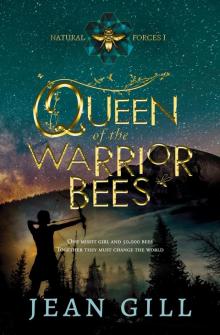 Queen of the Warrior Bees
Queen of the Warrior Bees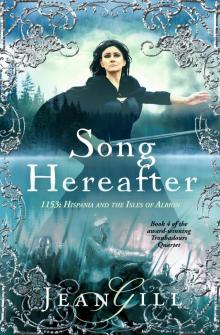 Song Hereafter
Song Hereafter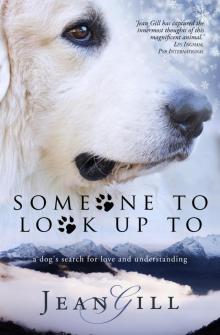 Someone to Look Up To
Someone to Look Up To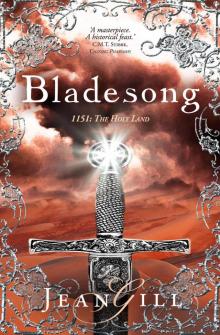 Bladesong
Bladesong How Blue Is My Valley
How Blue Is My Valley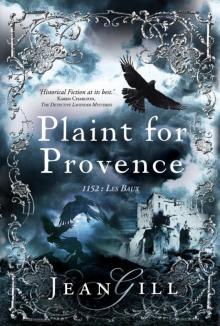 Plaint for Provence
Plaint for Provence Song at Dawn: 1150 in Provence (The Troubadours Quartet)
Song at Dawn: 1150 in Provence (The Troubadours Quartet)